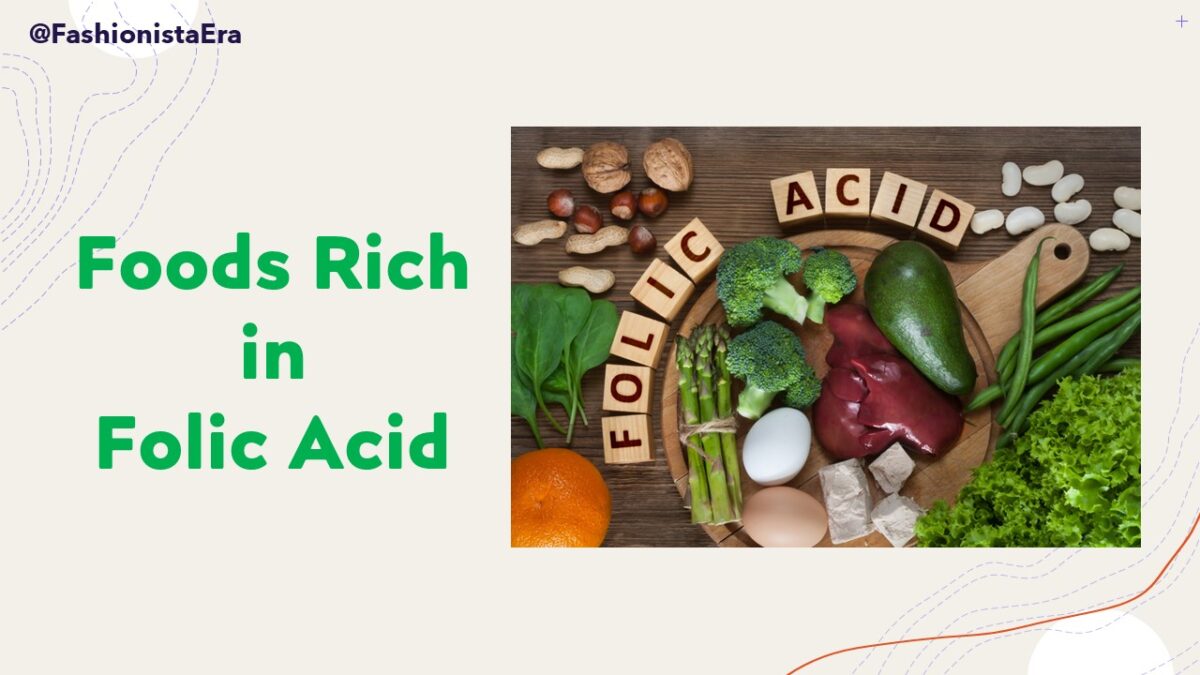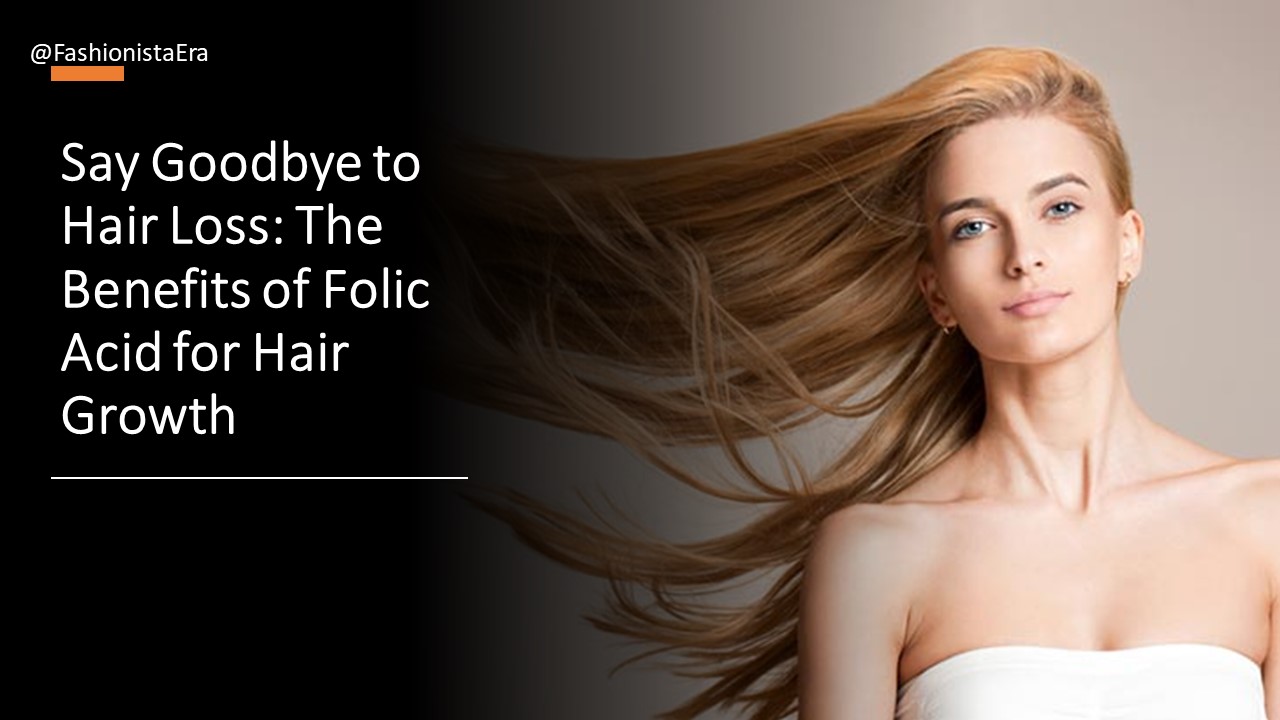Lose your hair battles? The benefits of folic acid for hair growth are worth taking a chance on! Learn more now about this important nutrient for healthy hair growth.
Are you tired of dealing with hair loss? It’s a frustrating and often embarrassing problem that affects millions of people worldwide. But what if there was a simple solution that could help you say goodbye to hair loss for good? Enter folic acid, a vitamin that has been shown to have numerous benefits for healthy hair.
In this article, we’ll explore the role of folic acid for hair growth and maintenance, and how you can incorporate it into your daily routine to enjoy its benefits. From preventing hair loss to promoting thicker, stronger locks, folic acid is a game-changer when it comes to achieving healthy and vibrant hair. So, let’s dive in and discover why folic acid should be an essential part of any hair care regimen.
Understanding Folic Acid and its Importance for Hair Health
Folic acid, also known as vitamin B9 or folate, is a water-soluble vitamin that is essential for healthy cell growth and development. It plays a crucial role in DNA synthesis, cell division, and the formation of red blood cells. Folic acid is particularly important for pregnant women, as it helps prevent birth defects in the developing fetus.
But what does folic acid have to do with hair health? Well, it turns out that folic acid is also essential for healthy hair growth and maintenance. A deficiency in folic acid can lead to hair loss, thinning, and premature graying. In fact, studies have shown that low levels of folic acid in the body can contribute to hair loss in both men and women.
The Role of Folic Acid in Preventing Hair Loss
Hair loss is a common problem that affects millions of people worldwide. There are many factors that can contribute to hair loss, including genetics, age, stress, and poor nutrition. But did you know that folic acid can help prevent hair loss and promote healthy hair growth?
Folic acid plays a crucial role in the production of red blood cells, which carry oxygen and nutrients to the hair follicles. Without adequate oxygen and nutrients, the hair follicles can become weak and damaged, leading to hair loss. Folic acid also helps to regulate the production of sebum, the natural oil that lubricates the scalp and hair. A deficiency in folic acid can lead to dry, brittle hair that is prone to breakage and damage.
By incorporating folic acid into your daily routine, you can help prevent hair loss and promote healthy hair growth. Whether you choose to consume folic acid through your diet or take a supplement, this vitamin can make a significant difference in the health and appearance of your hair.
Folic Acid For Hair Growth

In addition to preventing hair loss, folic acid has also been shown to promote hair growth. This is because folic acid is essential for the production of new cells, including the cells that make up hair follicles. Without adequate folic acid, the hair follicles can become weak and stunted, leading to slower hair growth and thinner strands.
Studies have shown that folic acid supplementation can increase hair density and thickness, as well as improve overall hair quality. In one study, women who took folic acid supplements for six months saw a significant improvement in hair growth and thickness compared to those who did not take the supplement.
How to Consume Folic Acid for Healthy Hair
Now that you understand the importance of folic acid for healthy hair, you may be wondering how you can incorporate this vitamin into your daily routine. Fortunately, there are many ways to consume folic acid, both through your diet and through supplements.
Foods Rich in Folic Acid
One of the best ways to increase your folic acid intake is by consuming foods that are rich in this vitamin. Some of the best food sources of folic acid include leafy green vegetables, such as spinach and kale, as well as beans, lentils, and citrus fruits. Other good sources of folic acid include fortified cereals and bread, as well as liver and other organ meats.
By incorporating these foods into your diet, you can increase your folic acid intake and promote healthy hair growth and maintenance.
Folic acid, also known as folate or vitamin B9, is an essential nutrient that plays a crucial role in many bodily functions, including DNA synthesis and cell growth. It’s particularly important for pregnant women, as it helps prevent birth defects of the baby’s brain and spine.

Here are some foods that are rich in folic acid:
- Leafy greens: Spinach, kale, collard greens, and other dark leafy greens are excellent sources of folic acid. One cup of cooked spinach contains around 260 micrograms of folic acid.
- Beans and legumes: Lentils, chickpeas, black beans, and kidney beans are all high in folic acid. One cup of cooked lentils contains around 358 micrograms of folic acid.
- Citrus fruits: Oranges, grapefruit, and other citrus fruits are good sources of folic acid. One medium orange contains around 40 micrograms of folic acid.
- Avocado: Avocado is a nutrient-dense fruit that is high in folic acid. One avocado contains around 121 micrograms of folic acid.
- Fortified grains: Many breads, cereals, and other grain products are fortified with folic acid. Check the nutrition label to see how much folic acid is in the product.
- Liver: If you’re a fan of liver, you’ll be happy to know that it’s one of the best sources of folic acid. One ounce of beef liver contains around 65 micrograms of folic acid.
- Asparagus: Asparagus is a tasty and nutritious vegetable that is high in folic acid. One cup of cooked asparagus contains around 262 micrograms of folic acid.
It’s important to note that some cooking methods, such as boiling, can reduce the amount of folic acid in food. To get the most folic acid from your food, try steaming or sautéing vegetables and eating them raw in salads.
Folic Acid Supplements for Hair Growth
If you’re not getting enough folic acid through your diet alone, you may want to consider taking a folic acid supplement. Folic acid supplements are widely available and can be purchased over the counter at most drugstores and health food stores.
When choosing a folic acid supplement, it’s important to look for a product that contains the recommended daily dose of folic acid (400-800 mcg per day). It’s also a good idea to talk to your healthcare provider before starting any new supplement regimen, especially if you are pregnant or have a pre-existing medical condition.
Combining Folic Acid with Other Hair Loss Treatments
While folic acid can be a powerful tool for preventing hair loss and promoting healthy hair growth, it’s important to remember that it is just one piece of the puzzle. If you are experiencing hair loss, it’s important to address the underlying causes of the problem, such as stress or poor nutrition.
In addition to incorporating folic acid into your daily routine, you may also want to consider using other hair loss treatments, such as minoxidil or finasteride. These medications can help to slow or even reverse hair loss in some cases.

Tips for Maintaining Healthy Hair with Folic Acid
In addition to consuming folic acid through your diet or supplements, there are other steps you can take to promote healthy hair growth and maintenance. Here are a few tips to keep in mind:
- Avoid harsh chemical treatments, such as perms or relaxers, which can damage the hair and lead to breakage and hair loss.
- Use gentle, sulfate-free shampoos and conditioners that are designed to nourish the hair and scalp.
- Avoid excessive heat styling, such as blow-drying or flat ironing, which can damage the hair and lead to breakage.
- Eat a balanced diet that is rich in vitamins and minerals, including folic acid, to promote healthy hair growth and maintenance.
- Practice stress-reducing activities, such as yoga or meditation, to help manage stress, which can contribute to hair loss.
Conclusion
If you’re struggling with hair loss or thinning, incorporating folic acid into your daily routine can be a game-changer. This essential vitamin plays a crucial role in healthy hair growth and maintenance, and can help prevent hair loss and promote thicker, stronger locks. Whether you choose to consume folic acid through your diet or supplements, this simple step can make a significant difference in the health and appearance of your hair. So why not give it a try and say goodbye to hair loss for good?

